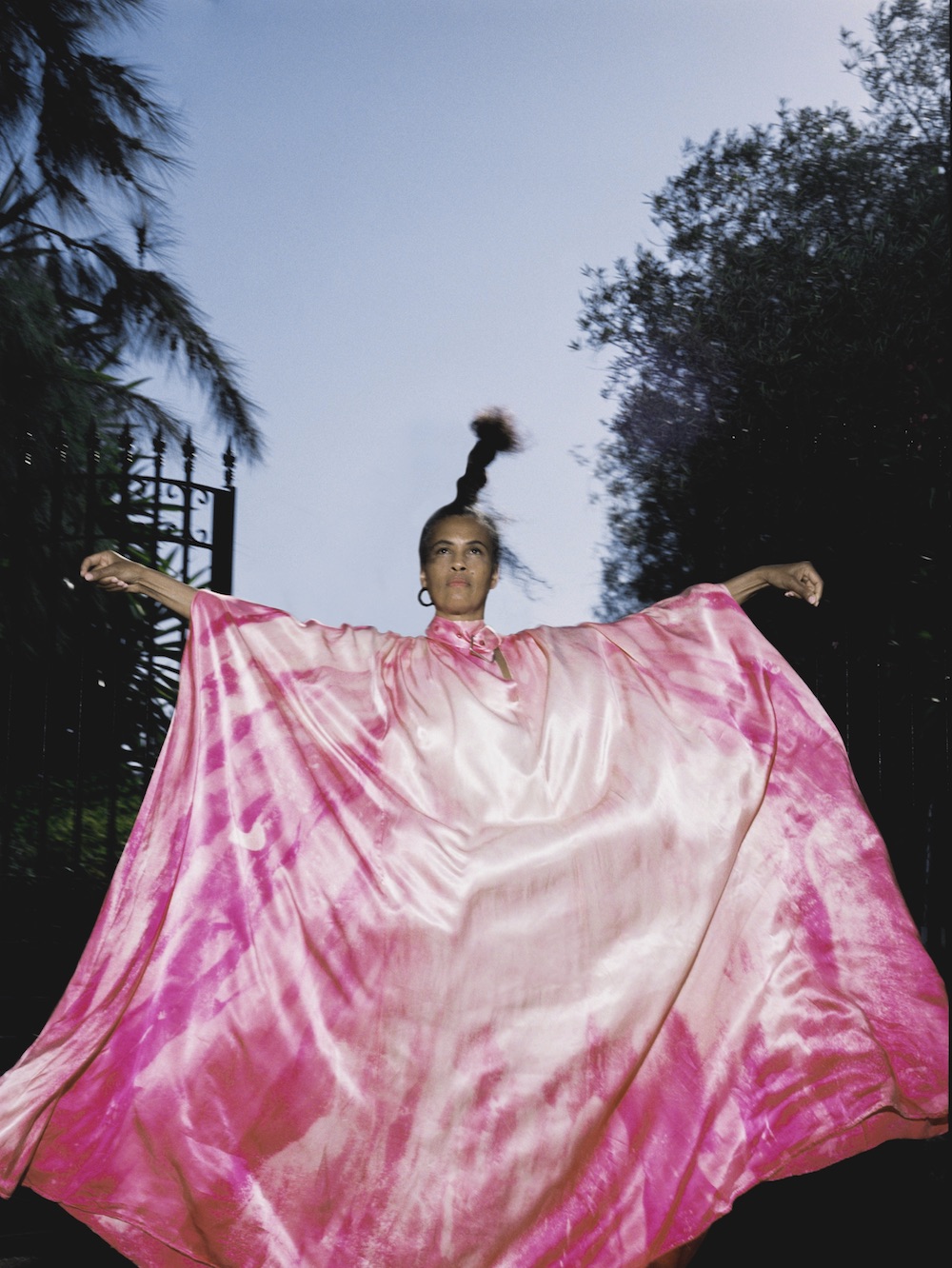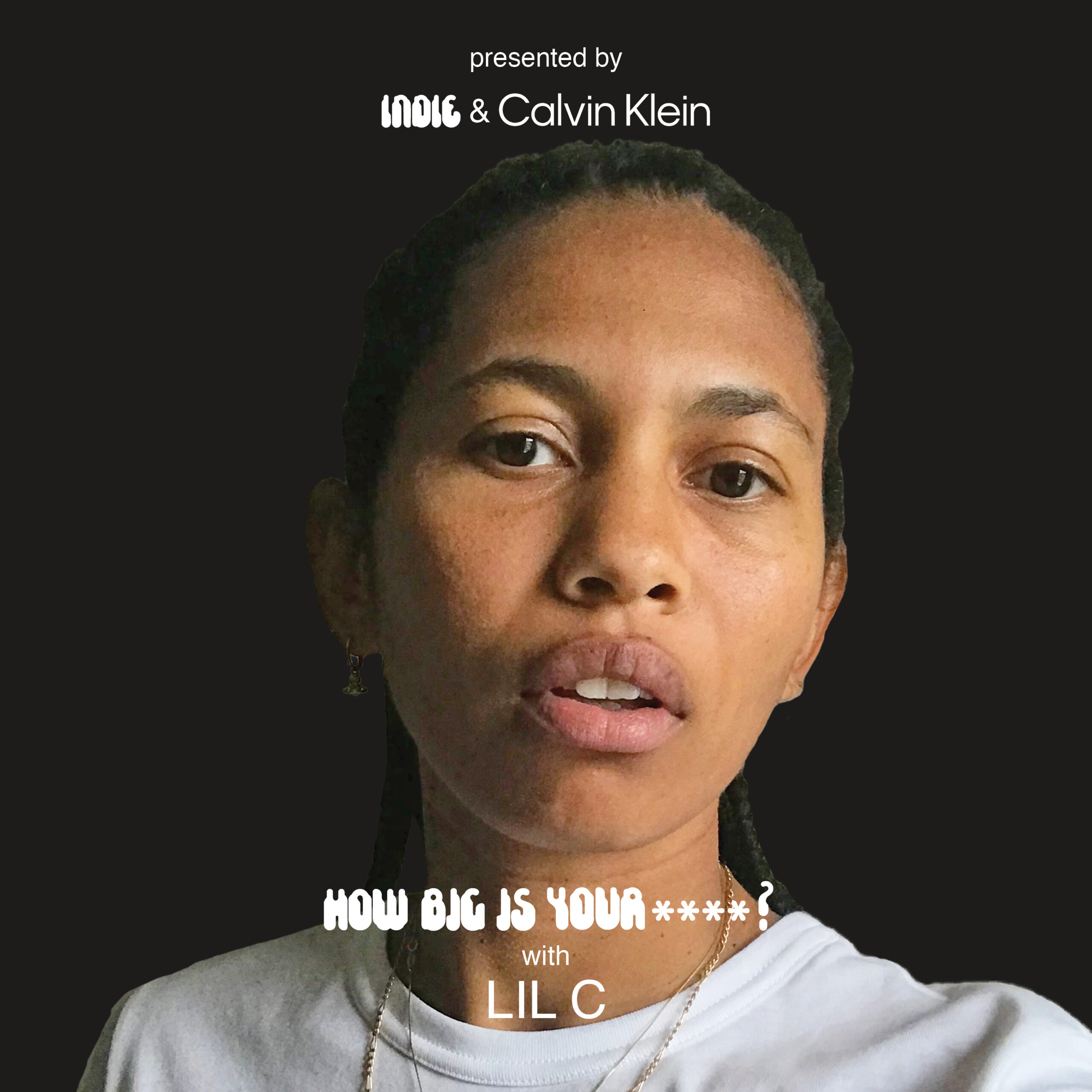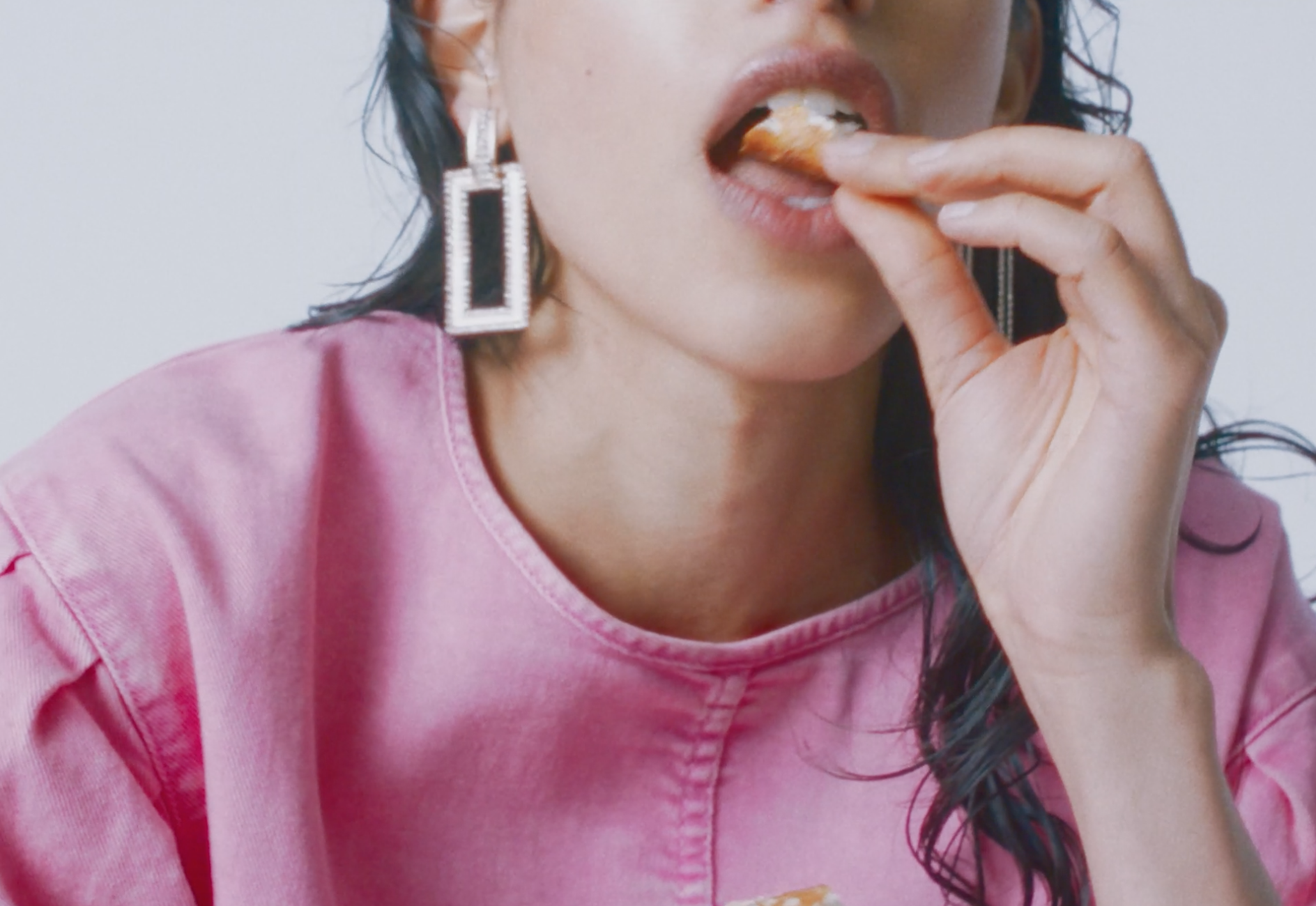Two of Berlin’s most dazzling disruptors of genre and gender are different but the same––ambiguously eccentric, eccentrically ambiguous. One-on-one, Lyra Pramuk and Peaches philosophise over performance personas, making music during a pandemic and their post-generational bond.
Long before WAPs became staples of mainstream pop culture, singer slash song-writer Peaches had her bush impeached, becoming an anti-patriarchal trailblazer for both graphic and lyrical depictions of female sexuality and queerness in song. A wapping (pun intended) 20+ years of industry experience to her name, the Canadian multi-talent has released six albums, starred by herself in a very unique rendition of Jesus Christ Superstar, and orchestrated various art exhibitions and performances, to name but only a few of her often comedic, always unabashedly feminist outpourings.
It’s hardly surprising, then, that the subversive musician is an icon of rebellion to Lyra Pramuk. A cream of the crop of the former’s teaches, the futuristic folk composer currently surfs atop the tailwind of her sensational 2020 debut record, Fountain—a glorious, largely wordless one-woman treasure trove of icy chorals, textured hymns, and computer-tuned, eerily melodic manipulations of her operatic voice; the album’s sole device.
On social media, Pramuk is outspoken on trans rights around the world, yet her music itself imagines a space that might be described as post-identity: where signification breaks down into the queer, amorphous pools of affect and desire. These days, the avant-vocalist and producer finds herself on the cusp of a European tour, where she will christen an array of the continent’s venues and festivals with her spectral soundscapes, and hopefully banish there-looming demons of COVID-19, if only for an evening.
Legendary American dancer Martha Graham once said: “There is a vitality, a life force, an energy, a quickening that is translated through you into action, and because there is only one of you in all time, this expression is unique—and if you block it, it will never exist through any other medium and will be lost.” It’s a quote Pramuk attempts to recite in reference to both her own and her friend Peaches’ prowesses and journeys—their equally unhinged, though dramatically distinct pursuits of radical self-affirmation and communal upheaval.
In vibrant exchange, the Berlin-based artists reminisce over the ground they share: late night karaoke sessions, attending Björk shows, band-less concerts. Above all else, however, the two vanguards—whose sonic aesthetics, professional upbringings, and vocal health regimens could hardly be less alike—debate their work’s greater, individual objectives, and the socio-political power of music. From embracing suppressed pain, to defiance of the binary, to finding and losing oneself in the throb of a night club, the classically trained human instrument that is Lyra Pramuk, and electro-punk pioneer Peaches set each others’ tongues alight.
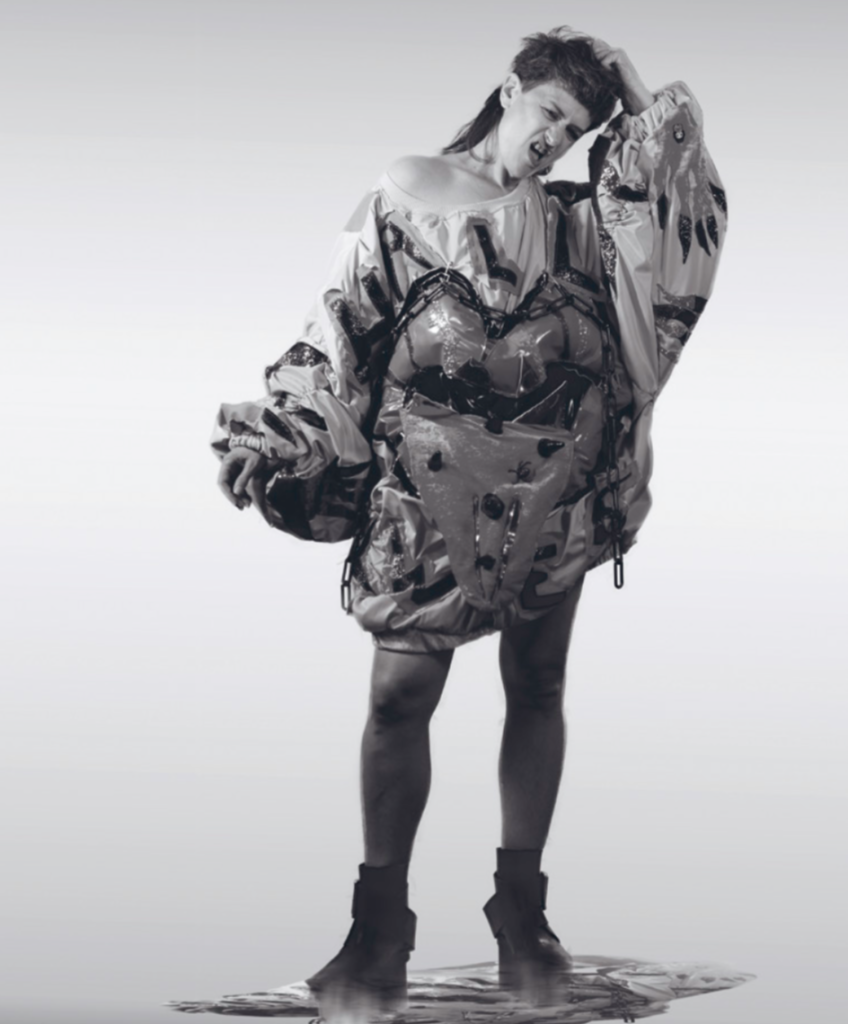
LYRA PRAMUK: Tell me about your studio process. How do you start putting tracks together and how has that impacted your writing over the years?
PEACHES: There are tracks, there are words and poetry, and then there’s a bunch of ADD all going on together. I put myself through this loop. It takes up so much time, and sometimes it’ll be a week of just pages, and circles, writing the same thing over and over again. As for melodies, it’s a melody if I’m still singing it a few minutes or an hour later. It’s exciting to me, even if it doesn’t fit into some form. I don’t write every day, but when I do write it’s very intense and fun, and even heartbreaking in the beginning. Every time I’ve worked on an album, it felt like, ‘have I ever even made anything before?’ I can seriously convince myself that I’ve never made a piece of music or art in my life.
LP: Maybe it’s the kind of humility you need when writing a song? Humble enough to let things coalesce and take shape. I’ve tried to write some songs before and if I was too arrogant about it, or my ego was too much in the room, it just wouldn’t happen. It’s a fine balance.
P: It really is. It’s something I want to explore more too—the ego thing, between myself and the audience, and the audience and their own individual egos. Your recognition of that speaks volumes to you as an artist. It’s what strikes me and other people to be like, ‘there’s a reason why I feel drawn to this, even though I’ve never seen or heard anything like it before.’
It’s been amazing to watch you grow, to watch your confidence, your conviction as a person, as a giver. You’ve had so many changes in your life, becoming who you are, coming into yourself, and also with your music and how you express all of that. Most people have so much going on in their heads about what’s happening to them, and what they’re creating and what they’re developing into, but you’ve always found a way to make it all feel really generous.
I don’t like to admit we’re different generations. I don’t have a problem with my age, but you know, it’s a different mindset than when I was your age. The way you’ve decided to be who you are has given insight into a really important perspective.
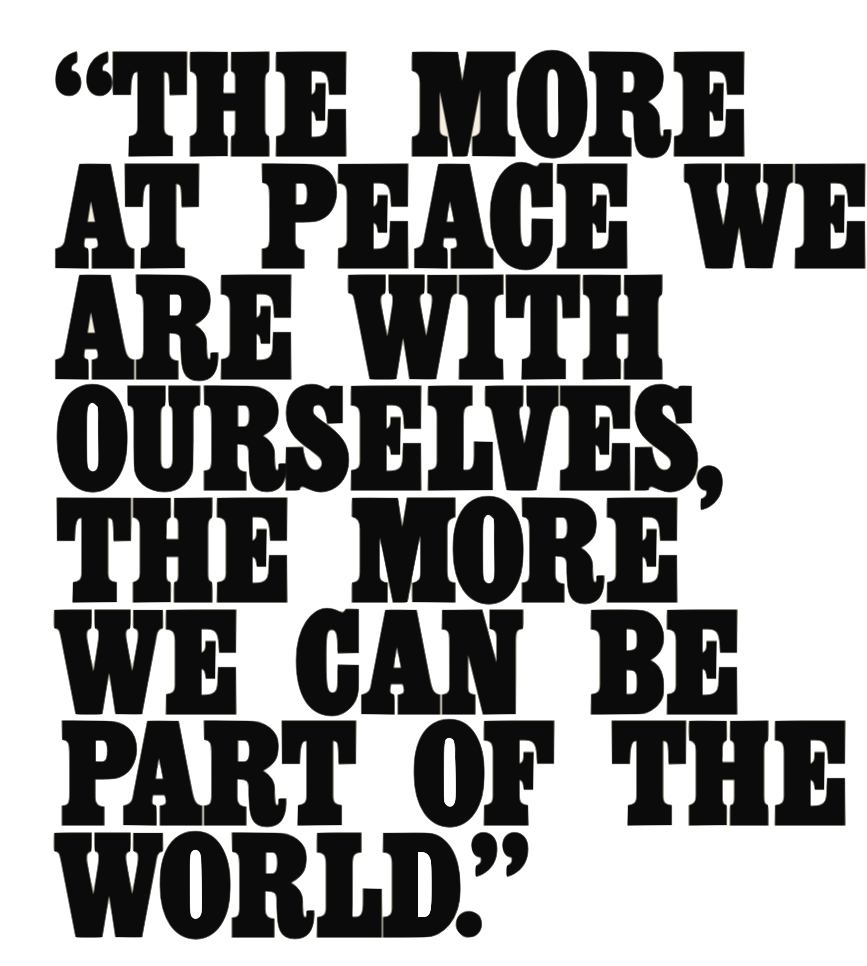
LP: That’s so nice to hear. Thank you so much, Peach. But I think we are the same and different generations.
P: And then we’re also our own generation that’s not a generation at all—post-generation. I get a lot of people who tell me they’re inspired by me, and I’m inspired back by that, because of the way people take in what’s going on. It’s strange because these are much more open and much more conservative times. Everything is growing exponentially in every direction.
LP: Yeah, absolutely. I think you and your work represent so many different things to so many different people. Everything is exponential and so oversaturated. But you? You destroyed and levelled, like, a medium. It’s hard to even put it into words. You’ve touched on literally everything that would make every norm-y person in society’s skin crawl, but in a humorous way, where you’ve been able to get away with it. Years ago, I was studying—this is a really dorky angle—a lot of cabaret singers in Weimar Germany. When I moved to Berlin, I saw you as a contemporary version of this traditional…
P: …Claire Waldoff ?
LP: Claire Waldoff, exactly! This raunchy, musical truth teller, immersing herself in the political context. I’ve always been a little bit more sensitive and reflective. At times it’s my downfall, but it was also kind of a privilege, because I think I had a safe room in my house—growing up even—where I could be those things. That’s also why I had my job all these years, so I could pay my bottom line and seek refuge in my own space. I have so much respect for everyone who was just like ‘fuck it.’ I was never really able to do that fully, because I am kind of a baby and more introverted. But I look up to you so much for taking that leap.
P: You may be introverted, but you are still revealing and processing all that you’re feeling and that you are changing. You have found a way to turn that introversion into a type of communication. There are a lot of nuances and subtleties in your style, whereas mine is more ‘LET’S GO!’ Which is also exciting, but neither is more or less. They’re equally important.
LP: Exactly, and they feed off of each other, too. Your language is so empowering for me. I’m so much slower in terms of reaching that level. I get there in my shows sometimes, it’s just more rare. I think maybe you relate to this—I have become more confident and extroverted as I play more shows. When I really let go, and am doing my thing, it’s like creating this vortex of energy between me and the audience. Identity doesn’t really matter that much. It’s like being a vessel. Do you feel that too, when you play?
P: Yeah, I definitely do. I never want to feel like a preacher or a moderator, I want to feel more like that vessel—I always call it a conduit, a conduit of that energy.
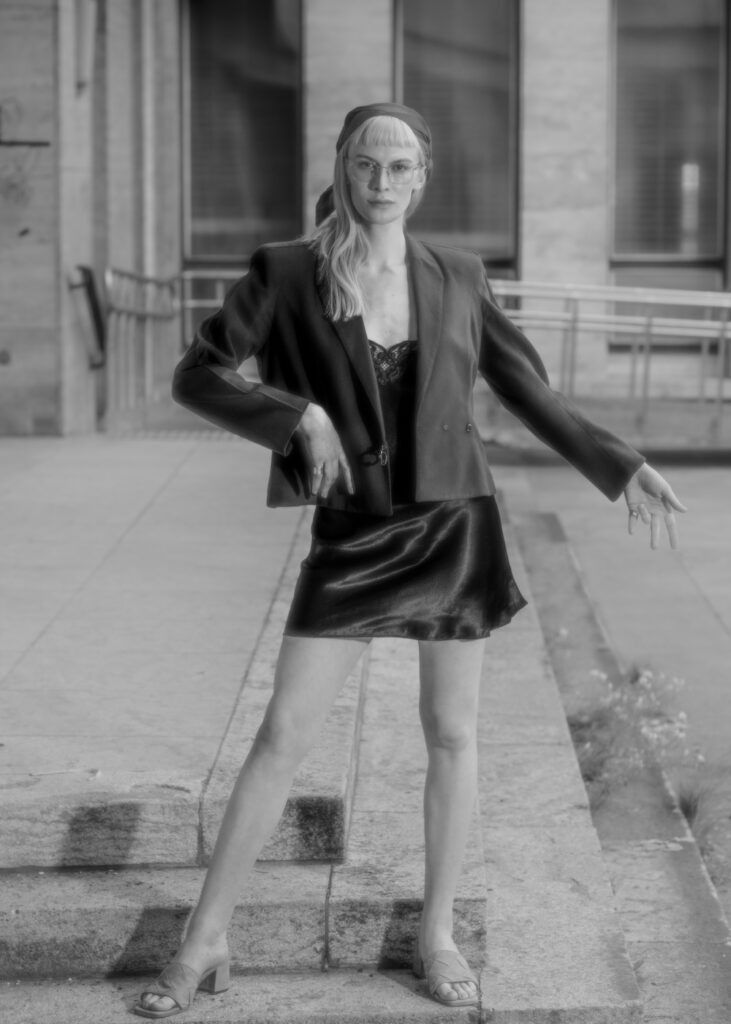
LP: I was so into political songs of the 20th century. I did a whole major at university on socialist songs in Germany. I was interested in how musicians can serve a purpose in society beyond their value as entertainers. What inspired me so much moving [to Berlin] as a young person and getting more and more into your work specifically, was having that role model, that exact energy to open a portal into gender and sexual freedom. You must’ve had the liberation of people on your mind since day one, no?
P: I wanted to question why things are the way they are, and I respect the standard. I always felt like, ‘why do I have to respect this standard, why does it mean so much to so many people, and what does it mean for those that the standard does not include?’ That’s where I came from—just Human Rights, basically. Music is so instinctive and visceral, it can be a great ramp into so many other creative endeavours. Building on music as the base from which to branch out into other artistic and political expressions—it’s that first, primal impulse.
L: What you said earlier, calling me generous. I’ve always wondered how music could serve that purpose, or what purpose that impulse would translate into and what greater effect my music could then have. We all have different magic skills, different superpowers. And mine is healing.
P: So, you see yourself as a healer?
LP: That’s my ambition. It’d feel weird calling myself that, but I have an ambition to be involved in collective healing through music, language, knowledge, performances, and through how we have conversations with each other. To use my body as an instrument to try and facilitate my own and others’ healing. That’s what I can realistically give back to the world as my contribution. I’m mesmerised by all the different skills and ambitions that other people have and find in our scene, in our business, and how they want to contribute. How about you?
P: I would see myself, again, as the conduit. That’s the method for me. I feel I get a lot projected onto me and I can project a lot back, and be that conduit to help people feel charged and more comfortable to take themselves in a different direction and be enabled.
LP: Do you feel like you let yourself into your performance persona? Are you there on stage too?
P: Most of the time. I don’t think you can be there all the time though, especially when you’re on a tour, playing every night. Sometimes I draw the line from here to here, front to back, between what I’m facing and what’s behind—singing while wondering how comfy the hotel bed will be. How weird and amazing that you can be in two completely opposite head-spaces, personal and public, at the same time.
LP: I start to feel that now, too. I have the most shows I’ve ever played in my life coming up this fall. With that, I’ve started to get into this more militant touring-state-of-mind where I just gotta turn on and turn off. It’s so new to me. I released my debut album into a pandemic.
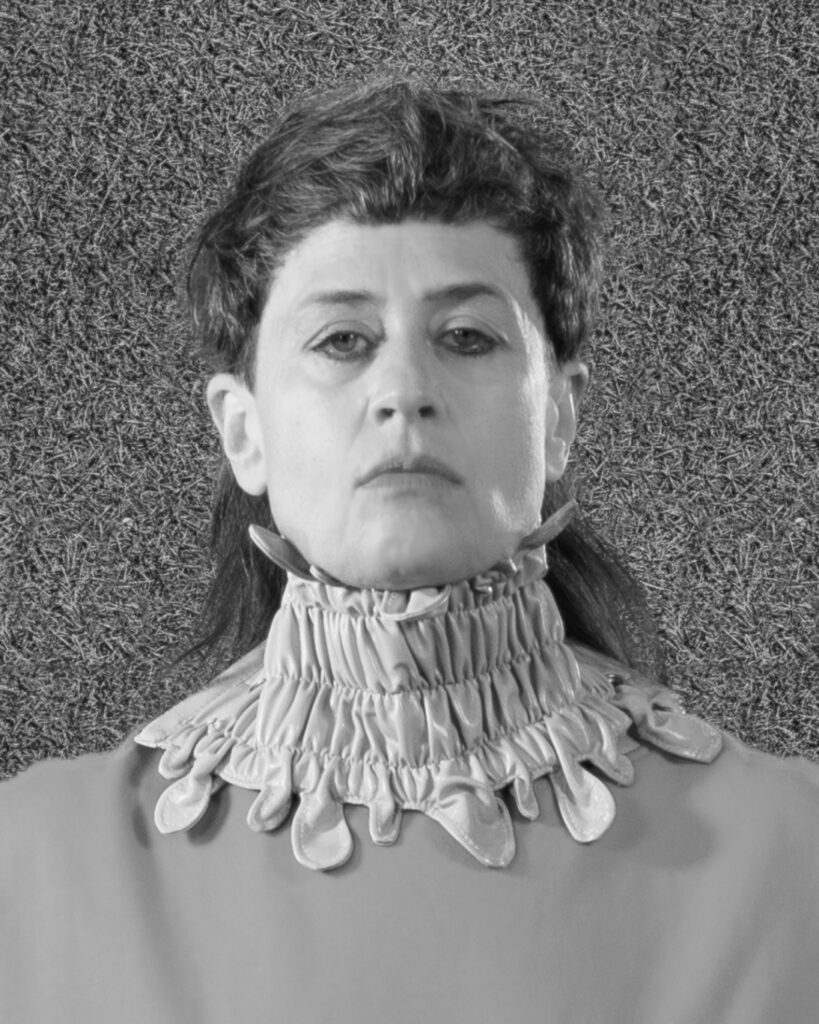
P: I can’t imagine that. Was there some sort of anticipation? Was it completely cold? Going into the pandemic, releasing a debut into this void? For me, I count on live interaction. That’s how I build an audience, which is what I’ve done. In your position, I don’t know if I’d have been able to do that.
LP: I’ve always played shows in more punk atmospheres—in the crowds, rolling on the floor. For years I was maturing in my craft, by experiencing life, relationships, clubs, environments, and different collaborations by keeping it low-key. I was learning from what I was seeing. When I came to Berlin, I would go to clubs all night and talk to people from different places, learn about their worlds and stories, different cultures of music, and share beautiful, intimate moments. I’ve always been obsessed with people, their paths, their crazy ways of being, their interests and peculiarities. I think it’s because I was trying to figure out who I was too, artistically and otherwise. I’m still figuring that out now.
P: We all are.
LP: It’s something I’ve been thinking about a lot. I’ve been looking outward and reading a lot of philosophy and feeling very social for three or four years. Now I’m starting to contemplate more about myself, and my past, present and future, in more profound ways. The universe summoned me to do so a bit more.
P: What does that mean for what you’re doing or how you function?
LP: Acknowledging, sitting, grieving and confronting pain instead of ignoring it. Looking back to when I was a kid, opening my eyes and reconsidering things I thought I had processed that maybe I didn’t.
P: I’ve been doing the same. I felt my focus was to endure it, not judge it, but feel it. I am really good at sitting with it and feeling almost like I don’t want to let it go. Pain can be a comfort—you know what I mean?
LP: It’s like this goth thing to do, right? Hugging pain, getting used to it. I have some people in my life who tell me it’s okay to be soft, but then it’s okay to release it. Can I though? Do I want to?
P: I don’t know how. I want to. I think I would feel a lot more at ease.
LP: I mean, investigating ourselves is our responsibility, because it’s the only way we can become better and more accountable people.
P: The more at peace we are with ourselves, the more we can be part of the world. That sounds cheesy and obvious, but it’s that easy. It seems quick and simple, but it’s a long term, daily process. It’s a conscious process and you can trick yourself in and out of it..
LP: I often think I’m doing quite well, then I realise I’m not doing well at all, and I’ve been ignoring a lot of stuff. We’re all prone to mess up, but then we have to recentre.
P: Sometimes I’d like to get lost more, but understand that I should not. I think the nature of performing so much all the time means you can really get lost in it. That can become your normal. Then when you have something like a pandemic, you first feel like, ‘ok, great, now I’ll take time to explore all these personal layers’, but you’re so used to going into those public spaces and hiding in them, being for other people, offering everything you have worked on, being kind of avoidant towards yourself. Because when you’re in those public spaces, on stages, yes it’s for you, but it’s also, firstly, for them.
LP: That’s really true, especially what you said about not being able to hide right now, during these times. We’re all forced to look things dead in the eye now: all that’s happening in the world, the climate, the conflicts. There’s no escape. The reason people have been so obsessed with Hot Girl Summer this year is because there are no more Hot Girl Summers—it’s Burning Girl Summer from here on out.
This conversation has been edited for length and clarity.

